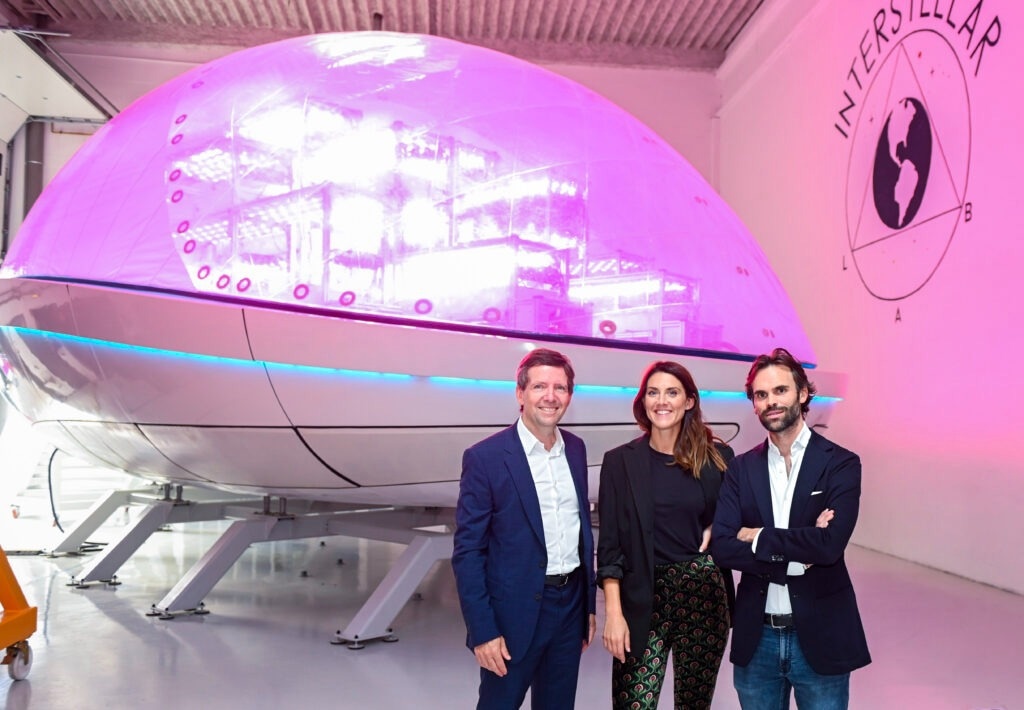The global natural ingredient industry is experiencing a remarkable surge in demand, driven by the increasing popularity of natural and health-conscious products, including herbal supplements and remedies. However, this growing industry is known to contribute significantly to climate change, from agriculture-related emissions and deforestation due to the expansion of agricultural land to excessive water use to grow crops.

Image Credit: Robertet
To this end, there is a growing demand for sustainable practices in the natural, driven by the increasing awareness of environmental issues related to agricultural practices.
Robertet, a world leader in natural products based in France, has joined forces with Interstellar Lab, an American-French start-up that specializes in biotechnologies. Together, Robertet and Interstellar Lab will revolutionize precision agriculture in the production of plant-based, natural ingredients.
Through the collaboration, Robertet has acquired a BioPod, a sustainable cultivation tool built by Interstellar Lab. The BioPod leverages cutting-edge technologies, such as sensor technology and artificial intelligence (AI), to automate agricultural processes - maintaining the ideal climate for crops while reducing cultivation space, energy, and water consumption.1
This approach will be instrumental in tackling diverse environmental concerns linked to agricultural techniques and could signify a significant step toward reducing the environmental footprint of the agricultural industry.
The BioPod: An Advanced Solution for Sustainable Agriculture
The BioPod is an innovative solution for sustainable cultivation that draws inspiration from NASA technology. It is a deployable greenhouse, measuring 11 meters in length, 5 meters in width, and 6 meters in height, that offers a growing space for up to 100 square meters.2 The innovation optimizes the water cycle and captures ambient carbon dioxide. Its transparent outer membrane also harnesses sunlight to reduce the need for artificial lighting, thus reducing energy demands.
The autonomous cocoon utilizes sensors and advanced AI to replicate various climates and reduce waste - for example, only giving plants the water they require when they require it.
The BioPod facilitates the sustainable production of a wide range of plants and helps address some important environmental concerns currently attributed to growing crops, such as the excessive use of water and energy as well as the demand for land. The pods, designed for use on Earth and on Mars, create closed sustainable systems for food production, as well as water and waste treatment systems.
The BioPod project was initiated in an effort to gain a deeper understanding of how humans are impacting the environment. Armed with this knowledge, finding ways to live more sustainably is possible.
The collaboration aims to enhance the sustainability of precision agriculture as well as advance agronomic research in the fields of fragrance, flavors, and well-being.
The Visionary Partnership: Interstellar Lab and Robertet
Both companies share a passion for protecting biodiversity, and it is hoped that the collaboration will foster a transition towards sustainable practices in the agricultural industry. The collaboration will leverage cutting-edge technology to benefit the planet.
As sensor technology and AI have become more sophisticated, it has become possible to revolutionize traditional practices so that their benefits can be enhanced and their drawbacks, such as environmental impact, can be limited. That is what the Interstellar Lab and Robertet partnership hope to achieve with BioPods.
Robertet is the first company to own a BioPod from Interstellar Lab. This inaugural contract will likely pave the way to similar projects that leverage technology to reduce the environmental impact of agricultural processes.
In 2021, the agricultural sector accounted for 10% of total greenhouse gas emissions in the US, representing a 7% increase since 1990.3 Thus, it is clear that adjusting land and crop management is one of the key ways in which the agricultural sector can reduce its environmental impact.
With the use of systems that use sensors and AI, such as BioPods, the amount of fertilizer and water given to crops can be closely managed. Data can be analyzed so that the levels required by different crops can be finely tuned. This leads to a reduction in waste in the agricultural industry, which can greatly reduce its environmental impact.
The partnership between Robertet and Interstellar Lab holds immense potential in revolutionizing agriculture. Through the utilization of cutting-edge technology and AI, BioPods can minimize waste and promote sustainable practices, significantly reducing their environmental impact. Collaborations like this play a pivotal role in fostering innovation within the industry, which is crucial for establishing widespread, sustainable farming practices urgently needed today.
References and Further Reading
- Interstellar Lab. Available at: https://interstellarlab.com/ (Accessed October 2023).
- Robertet and Interstellar Lab join forces to revolutionize production of plant-based natural ingredients [online]. Robertet. Available at: https://www.robertet.com/en/robertet-and-interstellar-lab-join-forces-to-revolutionize-production-of-plant-based-natural-ingredients/ (Accessed October 2023).
- Sources of Greenhouse Gas Emissions [online]. United States Environmental Protection Agency. Available at: https://www.epa.gov/ghgemissions/sources-greenhouse-gas-emissions#agriculture (Accessed October 2023).
Disclaimer: The views expressed here are those of the author expressed in their private capacity and do not necessarily represent the views of AZoM.com Limited T/A AZoNetwork the owner and operator of this website. This disclaimer forms part of the Terms and conditions of use of this website.